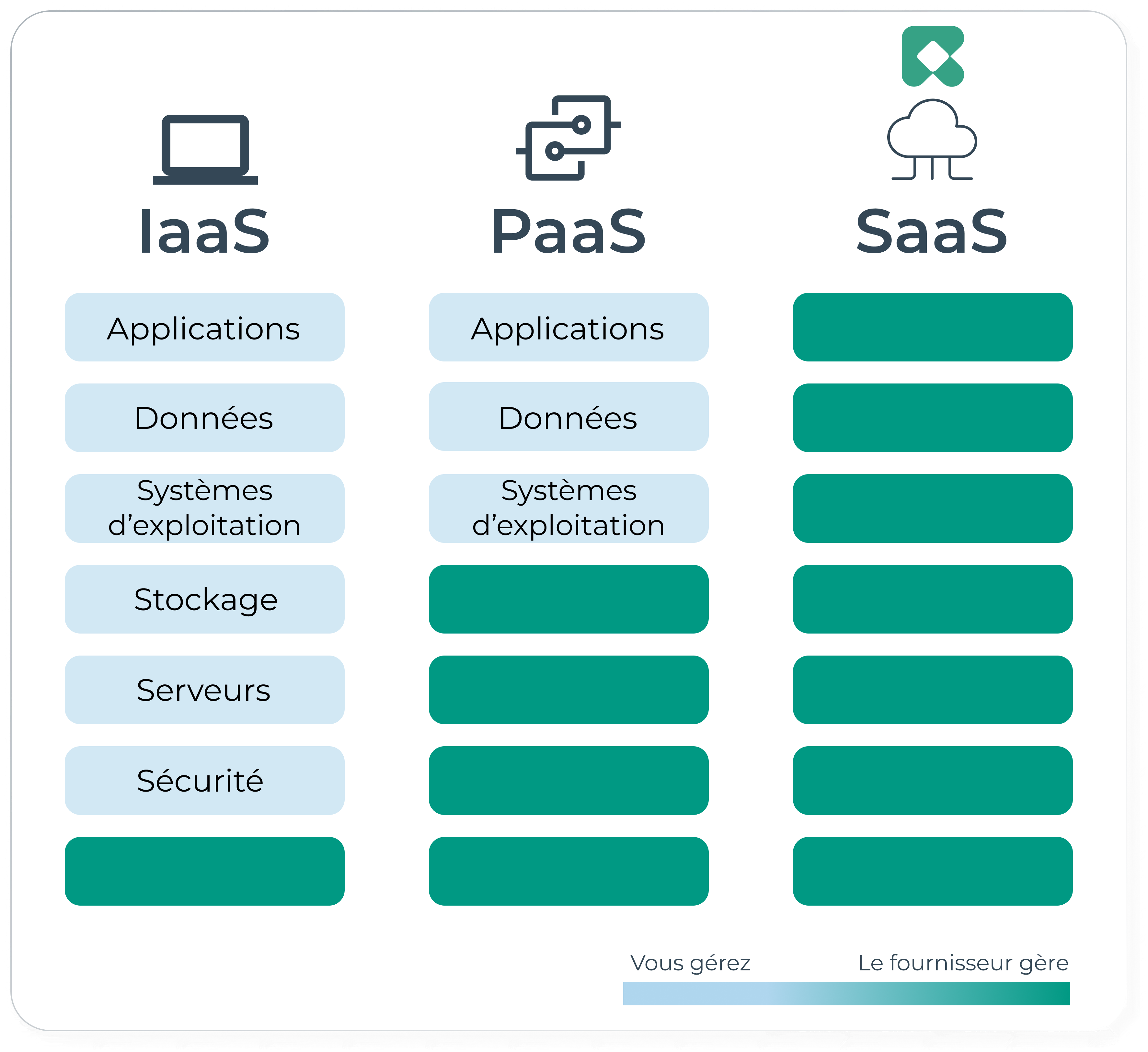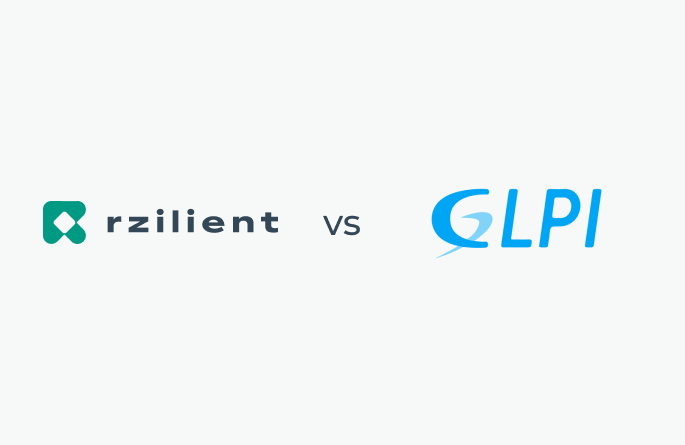What is cloud computing? Explanations

Benefit from effective IT support
Discover our all-in-one solution
The Cloud Computing has established itself as an essential pillar of the digital transformation of businesses. Initially reserved for large groups, it is now accessible to all organizations, from SMEs to ETIs. All through offers that are ever more flexible, economical and adapted to business needs.
But what exactly is cloud computing? What are the models, benefits, and limitations? How do I choose a supplier?
This article proposed by rzilient guides you step by step to understand Cloud Computing challenges and help you make the right choices.
What is cloud computing?
The term “Cloud Computing” refers to the fact of providing IT services (storage, servers, servers, applications, databases, computing power) via the Internet, rather than through infrastructures hosted locally in the company.
Concretely, you have access to IT resources on demand, in self-service, according to a flexible consumption model: you only pay for what you use, without having to invest (sometimes heavily) in equipment and software.
In other words, the cloud turns IT into a service that is available in a few clicks, scalable and accessible from anywhere.
In practice, this approach allows companies to focus on their core business, while relying on robust infrastructures and innovative solutions, offered by major players such as Amazon Web Services (AWS), Microsoft Azure, or Google Cloud.
The different cloud computing models
To better understand Cloud Computing, you need to distinguish between 3 main service models, which correspond to different levels of responsibility and autonomy.
Infrastructure as a Service (IaaS)
IaaS is the model that is closest to traditional infrastructure. You rent computer resources: virtual servers, storage, networks, operating systems. You are the one who controls their configuration, updating and operation.
This model is particularly interesting if you want to keep control of the technical architecture while avoiding hardware constraints. For example, if you are developing specific applications that require custom infrastructure.
Platform as a Service (PaaS)
With PaaS, you get a comprehensive platform for developing, testing, and deploying your applications, without having to manage the underlying infrastructure. The provider takes care of servers, storage, security, and scalability.
It is a popular solution for development teams who want to focus on code and innovation, while saving time on technical administration.
Software as a Service (SaaS)
SaaS is certainly the best known model: the provider hosts and manages the application, and you simply access it via a web browser. Updates, maintenance and security are taken care of by the service provider.
Emblematic examples: collaborative tools, CRMs, data storage platforms. For your employees, it is the guarantee of working with applications that are always up to date and accessible on the go.

The types of cloud deployments
In addition to service models, the cloud can be deployed using several approaches:
Public cloud
In a public cloud, IT resources are shared and shared between several customers. Providers like AWS or Google Cloud host infrastructure in their data centers, and you access it via the Internet. This model seduces with its flexibility and optimized costs.
Private cloud
The private cloud consists in setting up an infrastructure dedicated to your business, either on your own premises or at a service provider. This approach provides greater control over security and cyber compliance while maintaining the benefits of the cloud.
Hybrid cloud
Hybrid cloud combines public and private environments. For example, you can store sensitive data on private infrastructure and use a public cloud for less critical applications. It is a solution that combines security, flexibility and cost optimization.
Community cloud
Less widespread, the community cloud is shared by several organizations with common interests (sector of activity, regulatory requirements, etc.). It offers a compromise between sharing and personalization.
The benefits of cloud computing for your business
Cloud computing is a powerful tool for modernizing IT, gaining agility and optimizing performance. Discover the main benefits.
Scalability and flexibility
The cloud allows you to adapt your IT resources in real time according to your needs: you increase capacity during peak activity, then you then reduce it. No need to size your infrastructures “to the maximum” and to tie up capital unnecessarily. This is a major asset for growing businesses or those launching new services.
Cost reduction
The pay-as-you-go model limits initial investments. You only pay for what you consume. No more buying expensive and often unused servers. In addition, maintenance and updates are included in the subscription, which reduces the workload on your IT teams.
Accessibility and mobility
Cloud computing promotes collaborative work and mobility. Your employees can access applications and data securely, from any terminal. This is a strategic challenge in a context of teleworking and teams distributed in different geographical locations.
If you want to dive deeper into these topics, check out our detailed article on benefits of cloud computing.
The challenges and limitations of cloud computing in business
Like any technology, Cloud Computing also has challenges that must be anticipated.
Data security
Data protection remains a central concern. Although cloud providers are investing heavily in cybersecurity, you remain responsible for the proper management of accesses, identities and configurations. Vigilance is therefore required.

Dependence on the supplier
Switching your infrastructure to the cloud also means that you depend on the performance and continuity of service from your provider. It is important to carefully study contractual conditions and reversibility options.
Compliance issues
Some companies must meet strict regulatory obligations (RGPD, sector certifications). So remember to check the location of the data and the level of compliance of the services used.
How do I choose a cloud service provider?
Choosing a cloud provider isn't just about cost. Here are the most important criteria to consider:
- Compatibility with your business needs : check that the provider offers the necessary services (SaaS, IaaS, PaaS) and connectors adapted to your existing tools.
- Security and compliance : review certifications, contractual guarantees, and security measures in place.
- Scalability : ensure that the platform can support your growth without excessive additional costs.
- Technical support and support : choose a partner that offers responsive support and tailor-made assistance services.
- Interoperability and data portability : a key point to avoid technological confinement.
At Rzilient, we believe that a good provider is also a partner that helps you orchestrate and automate cloud management. All thanks to personalized workflows and real-time management.
Cloud Computing applications in business
Cloud computing opens up a very broad field of applications:
- Data storage and backup : outsource your data to secure infrastructures, with automated backups.
- Collaboration : facilitate the sharing of documents, internal communication and the coordination of dispersed teams.
- Application development : create and deploy digital solutions more quickly thanks to PaaS and SaaS.
- Business intelligence and analytics : exploit your data on a large scale thanks to advanced computing capabilities.
- Computer security : strengthen the protection of your systems through threat monitoring and detection tools.
With an all-in-one platform like Rzilient, these applications become easier to manage: you centralize management, you automate processes and you offer your teams outsourced IT support, regardless of their location.
As you can see, Cloud Computing is no longer an option: it is an essential tool for gaining agility, securing your data and streamlining your IT. For businesses, this is a unique opportunity to modernise their operations while controlling costs and facilitating collaboration.
Do you want to know more or benefit from tailor-made support to integrate the cloud into your strategy? Contact us: at rzilient, we help you simplify IT management and get the most out of Cloud Computing







